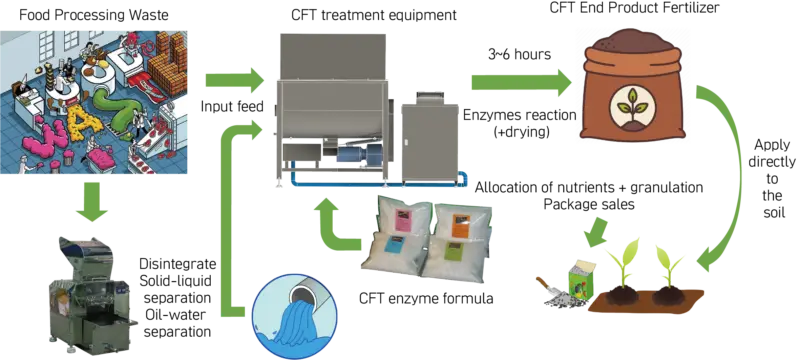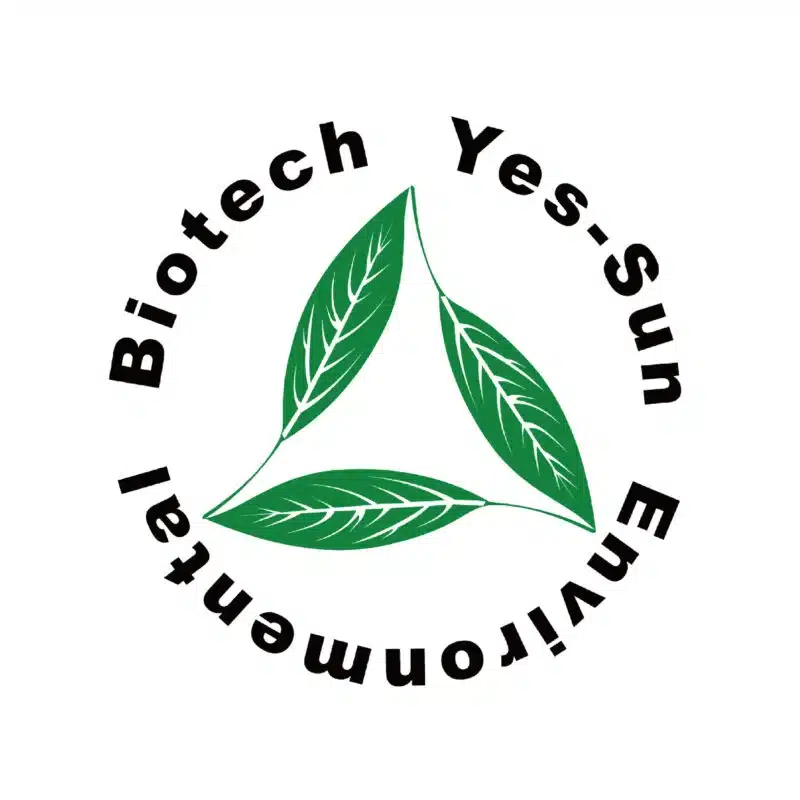Application of Composting-free Technology
The Composting-free Technology has a wide range of applications in different fields. It can be used for processing organic waste from agriculture, forestry, fisheries, livestock industries, and daily life. This technology can also be applied in the treatment of industrial organic waste from food processing industries, wineries, slaughterhouses, hospitals, and hotels, among others.
The end product of the Composting-free Technology is a high-quality soil conditioner or organic fertilizer that can be used to improve soil health and increase crop yields. It can also be used as an animal feed additive to increase nutrition and supplement feed. The Composting-free Technology reduces the need for chemical fertilizers and decreases overall production costs.

Processing flow of Composting-free Technology
The Composting-free technology revolutionizes traditional concepts by applying the metabolic principle of human digestion and integrating the theories of the digestive and urinary system. Through the use of Composting-free equipment and Composting-free enzymes, organic waste is converted into organic fertilizer that can be used immediately.

INTEGRATION OF COMPOSTING-FREE TECHNOLOGY
Integration of Composting-free Technology refers to the use of different components and processes to convert organic waste into organic fertilizer without traditional composting methods. This technology integrates microbial, biochemical, organic, and soil technologies to create a rapid, stable, and safe process. The components used in this technology include specialized equipment and Composting-free enzymes, which work together to convert organic waste into a high-quality soil conditioner and fertilizer. The integration of these components leads to reduced processing time, space requirements, and energy consumption, while also reducing problematic waste treatment methods like landfill and incineration.




 中文 (台灣)
中文 (台灣) Bahasa Indonesia
Bahasa Indonesia Tiếng Việt
Tiếng Việt Bahasa Melayu
Bahasa Melayu Français
Français Español
Español Português
Português